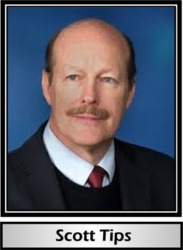“Show me the man and I’ll find you the crime.” —Lavrentiy Beria, Stalin’s Soviet Security Chief
It is no State secret that government legislators and bureaucrats churn out a multitude of laws, statutes, codes, rules, and regulations year after year without any letup. After all, they must justify their existence, and one way to do that is to make new laws, rules, and regulations for us to follow. It also solidifies their power over their fellow citizens.
Almost two millennia ago, the Roman historian Tacitus observed that “the more corrupt the State, the more numerous the laws.” He was on to something. In the United States, the growth industry is not really in Congressional laws, which actually show a mild downward trend at times, but is in the bureaucratic rules and regulations and guidance documents that they generate. The old and outdated rules and regulations rarely go away, while the new ones keep piling up. How can anyone, even a lawyer, keep up with all of the mandates?
The Result?
Some 20 years ago, the American Bar Association (ABA) reported that we have more than 3,300 separate criminal offenses. And 40% of these criminal offenses were created in just the previous three decades. Now, that estimate has increased to 4,500 Federal crimes in the United States Code, and more than 300,000Federal crimes in some 400,000+ Federal rules and regulations!Just look through some 50 separate Titles of the United States Code, add those offenses together, and you will come up with at least 27,000 pages of crimes. That would be enough to be any attorney’s nightmare, let alone for a private citizen. Yet, adding insult to injury, many of these criminal code sections then incorporate by reference the administrative regulations (and their sanctions and penalties) of various regulatory agencies. The ABA does not even know how many such regulations exist, but it approximates them to over 10,000. The sheer number of these laws is stupendous and still keeps growing. Even Congress’ own research service cannot count the current number of Federal crimes. And if they cannot keep track of them, how could you or I?
And if you cannot keep track of the laws, how will you know when they have been violated? For instance, assessing criminal penalties for harming the environment may sound like a great idea, but not when they result in an injustice. In 1994, the White Pass & Yukon Railroad hired a contracting company to blast and carry away rock outcroppings. In doing its work, one employee of the contractor was using a backhoe to clear some rock debris from the tracks and accidentally struck an oil pipeline running alongside the railroad tracks. The pipeline burst open and spilled many thousands of gallons of oil into the adjacent creek. Theoff-dutymanager of the Railroad (not the worker, nor the manager of the independent contractor) was later convicted and sentenced to six months in prison, a relatively lucky sentence considering the other criminal charges he faced for conduct that happened while he was not even working and by someone who was not even his employee!
Are We Being Over Criminalized?
In his 2011 book Three Felonies A Day – How the Feds Target the Innocent, Boston civil-rights lawyer Harvey Silverglate reasoned that the average American commits several felonies each day without even realizing it. Worse still, he notes that if the government takes a dislike to you for any reason, then they can and will easily dig up a felony that you are guilty of.Retired Louisiana State University law professor John Baker agrees. According to Professor Baker, “[t]here is no one in the United States over the age of 18 who cannot be indicted for some Federal crime." Commentator John W. Whitehead puts Baker’s words into a “there-but-for-the-grace-of-God-go-I” context when he writes, “Consequently, we now find ourselves operating in a strange new world where small farmers who dare to make unpasteurized goat cheese and share it with members of their community are finding their farms raided, while home gardeners face jail time for daring to cultivate their own varieties of orchids without having completed sufficient paperwork. This frightening state of affairs—where a person can actually be arrested and incarcerated for the most innocent and inane activities, including feeding a whale and collecting rainwater on their own property—is due to what law scholars refer to as overcriminalization.”
Many of these laws are simply too vague for anyone to comprehend and then follow so as to not be guilty of violating them. I rather suspect that such laws are deliberately written to be vague so that Federal bureaucrats and agents can exercise their whimsical sense of moral discretion as to whom to swat down with them. This disgrace continues to be the norm today despite U.S. Supreme Court Justice Stevens’ admonition, confirming decades of judicial precedent, that "a law fails to meet the requirements of the Due Process Clause if it is so vague and standardless that it leaves the public uncertain as to the conduct it prohibits.”
Another centuries-old bedrock of Anglo-Saxon common law has been that it only imposed criminal penalties upon someone who had committed a crimewith purpose and knowledge. But the trend now is to criminalize, with increasing frequency and ease,negligentconduct. When you combine that with the growing complexity and vagueness of the law, then you can easily understand why the United States today has a larger prison population per-capita than any other country in the World. It is very easy for anyone to unknowingly and inadvertently violate a law that now carries criminal penalties and end up in the slammer as a result.
The “No Lying” Law
What apparently tripped up many an unsuspecting person is a lesser-known Federal law codified as Title 18 of the United States Code, Section 1001, or what criminal lawyers usually simply refer to as “1001.” Section 1001 is a stealth law that prohibits you from lying to any Federal investigator or official, even if you are not under oath and have not committed any crime. The lying can be oral or written, it does not matter. What does matter is that if you are convicted of violating Section 1001, then you can be fined and/or imprisoned for up to 5 years in a Federal penitentiary.So, remember this law the next time you are entertained with a visit by an investigator from the Food and Drug Administration (FDA), the Federal Trade Commission(FTC), or the Department of Agriculture. It is not just the Securities and Exchange Commission and the FBI looking for inside traders who can use this law against you, it is all of the alphabet-soup agencies that cover the land, and more. You cannot lie to any Federal official, no matter whether he or she is with the executive, legislative, or judicial branch of the Federal government.
Under the Federal Food, Drug, and Cosmetic Act, the FDA can visit and inspect any facility that manufactures, processes, packs, or holds for introduction into interstate commerce, or, after such introduction, stores food or food supplements. The Agency will then ask questions of the facility manager or owner, which if answered in a less-than-truthful manner could unknowingly place the person answering the questions in danger of criminal prosecutioneven ifthey have otherwise done nothing wrong. So, when the FDA pays you a visit and starts asking questions, watch your words.
They Can Lie to You
Of course, regular readers of this column would not be surprised at all to learn that Section 1001 does not prohibit or criminalize lying by federal officials to private citizens. Not at all.They, with their special status, can lie their heads off to us without any criminal consequence. It is like the difference between our social-security system and their congressional pension benefits. We, the people, must be satisfied with old-age benefits that pay us a pittance of our normal earnings while congressmen and -women and Senators get to retire in the lap of luxury after even a few years of service with millions of dollars in pension benefits that we could only hope for.But in the case of Section 1001, it is even worse because private citizens could actually go to prison for lying to Federal officials. We cannot go to prison for lying to one another in normal life, and Federal officials cannot go to prison for lying to us. But if we dare lie to them, then we could be facing 5 years of hard time. Better to keep quiet whenever dealing with a Federal agent than to risk imprisonment through an inadvertent misstep.
The Old FBI Trick
Typically, when the FBI investigates anyone, it will send two agents to surprise a witness or suspect with an “interview.” While one agent questions the subject, the other agent takes notes. Afterwards, the two agents turn those notes into a written summary on a “Form 302.” Standard policy for FBI field and other agents is that if the subject tries to record the interview, he or she will be told that this is against FBI policy. By not recording these interviews (“ambushes” might be a better word), the FBI has great leeway in how it summarizes the subject’s words in its Form 302. As you can imagine, the FBI can make up whatever it wants. After all, it’s only one private citizen’s word against that of two selfless public servants as solemnly confirmed in writing by their Form 302. What judge or jury will believe the private citizen, especially one suspected of criminal activity?This trick has been used on Martha Stewart, General Flynn, former Illinois Governor Rod Blagojevich, and countless others to obtain a conviction for lying to a Federal agent even when the underlying charges would not stick. In fact, in most cases these days, where an interview has taken place with a Federal agent, and then the person goes on to be charged with an underlying crime, there is also attached a “false-statement” charge.
The Solution?
Do not think that you are going to “clear” yourself by talking to a Federal agent. If the two (or more) agents insist on talking with you, invoke your Fifth Amendment right to remain silent even when youknowthat you are completely innocent. If, in the case of the FBI (or other law-enforcement officers), you do not want to seem obstructive, then simply insist upon recording the interview. Do not hide that you are doing this, as that could get you in trouble; but put your cellphone or other recording device right there on the table between you and them and insist on recording. This alone will cause the agents to immediately terminate the interview as that is FBI policy.Here are some other tips:
- Realize that Federal officials do not have to live by the same rules as you and I—they are given and get special treatment above and beyond anything you and I, the taxpayers, can ever expect, including the right to lie to your face;
- Remember that the laws covering your conduct are complex and often provide for surprisingly strong criminal penalties for conduct that you may think is innocent or at worst accidental;
- And, because of the foregoing, if you must speak with any Federal officials, ask for your attorney to be present first and choose your words wisely or, better yet, do not say anything at all.
- If you intentionally hurt someone or damage their property, you will pay criminally.
- If you intentionally take another’s property, you will pay criminally.
- If you do either of the above unintentionally, you will pay civilly.
Editor’s Note: This article is intended for information purposes only. Because state and municipal laws vary greatly, as do the circumstances of individual cases, readers are advised to contact an attorney for specific legal advice. © Scott C. Tips 2020
Note: The views and opinions expressed here are those of the author(s) and contributor(s) and do not necessarily reflect those of the publisher and editors of WholeFoods Magazine.










